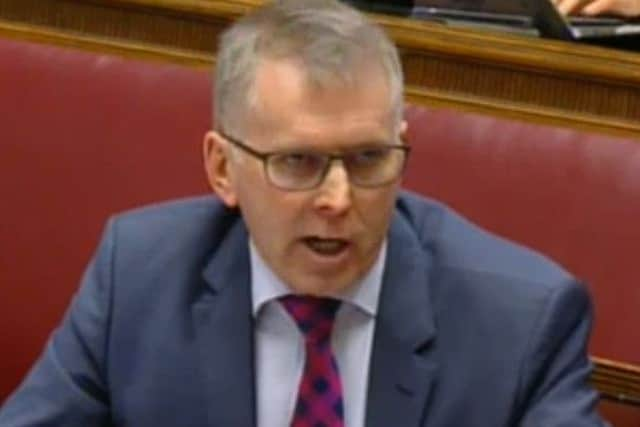RHI inquiry: officials went along with DUP-SF secrecy in Executive
and live on Freeview channel 276
In evidence to the public inquiry into the RHI scandal which lifts the lid on the culture under devolved Executives, David Sterling said that there was a desire by the DUP and Sinn Fein for many meetings not to be minuted or otherwise recorded, in an attempt to thwart Freedom of Information (FoI) requests.
Mr Sterling, who is now running Northern Ireland without any ministerial oversight in the absence of either devolution or direct rule, told the inquiry that the two parties were “sensitive to criticism” and that officials – despite civil service advice being to the contrary – had “got into the habit of not recording all meetings”.
Advertisement
Hide AdAdvertisement
Hide AdThe comments came during exchanges about missing records which mean that there is now no way to substantiate two conflicting versions of events given by Arlene Foster and one of her senior officials, who claimed that she passed on a warning to the minister about the absence of cost controls on the RHI scheme.


Mr Sterling was the most senior official in Mrs Foster’s department at the time when RHI was set up in 2012.
He admitted that “there are things [about the scheme] that I cannot satisfactorily explain”.
In a revealing glimpse into the culture at the top of Stormont, Mr Sterling also spoke candidly about a belief among senior civil servants and politicians that Northern Ireland should get as much money from the Treasury as possible.
Advertisement
Hide AdAdvertisement
Hide AdIt was put to Mr Sterling that such a tactic could bring accounting officers in Stormont departments into conflict with the most fundamental principles of their role – that the best value for money, rather than the proposal which will bring the most money into Northern Ireland, should be the central consideration.


Dr Keith MacLean, the technical assessor to the inquiry, put it to Mr Sterling that his old department, now the Department for the Economy, had told the inquiry “in so many words that the good practice of taking minutes of these meetings had practically been abandoned”.
Mr Sterling said: “Indeed, and that would have been fairly common across all departments.”
Dr MacLean said: “That doesn’t make it right,” to which the senior civil servant – who on Saturday will dine with Donald Trump in the White House – replied: “No it doesn’t make it right but it reflects in some respects just the challenges facing the senior civil service working in this particular devolved administration.”
Advertisement
Hide AdAdvertisement
Hide AdHe went on: “Ministers here – no different to anywhere else – like to have space, safe space where they can consider difficult things, think the unthinkable and not necessarily have it all recorded.
“A feature of the devolved administration here has been that the two main parties have been sensitive to criticism and I think it’s in that context that as a senior civil service we got into the habit of not recording all meetings on the basis that it is safer sometimes not to have a record that might, for example, be released under Freedom of Information, which shows that things that might have been considered unpopular were being considered.”
FoI legislation does include an exemption for policy advice and other wide exemptions which Stormont departments frequently used to refuse requests.
Inquiry panel member Dame Una O’Brien, a former permanent secretary of Whitehall’s Department of Health, said it was understandable that ministers wanted a safe space to discuss ideas but that there was an obvious need for critical decisions to be recorded.
Advertisement
Hide AdAdvertisement
Hide AdMr Sterling admitted that it was unsatisfactory that there were no records of the reasoning behind some key RHI decisions.
Later, Mr Sterling said: “The practice of minuting discussions with ministers had fallen into abeyance; into disuse. But I wouldn’t extend that into concluding that it would be common practice for there to be no record of decisions taken by ministers.
“ I still would be reasonably confident that if there was a discussion like this in another area... that yes there may well have been meetings, discussions with the minister and special adviser that weren’t minuted but that the final decision that the minister took would still have been clear if you look at the audit trail.”